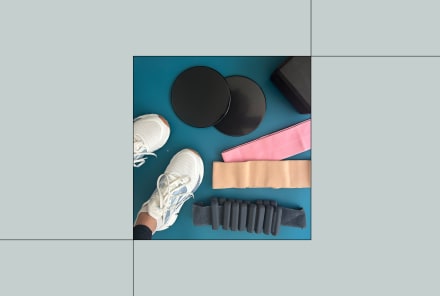Advertisement
Cloth vs. Disposable Diapers: An Expert Weighs The Pros & Cons

The vast majority of American parents—by some estimates 95%—use disposable diapers at least sometimes for their babies. But cloth diapers offer an alternative that more and more parents turn to. Choosing between the options involves considering what's best for your baby, for you, for your family, and for the environment.
Competing opinions:
- Perspective No. 1: Cloth diapers are better for the environment. They're cheaper in the long run, and cloth is a better material to have against an infant's delicate skin. Plus, they don't contain the chemicals present in disposable diapers that may have allergenic consequences.
- Perspective No. 2: Disposable diapers are more convenient and sanitary. They'll keep the baby drier and less likely to suffer from diaper rash. And they're not even necessarily worse for the environment since the washing and delivery of cloth diapers waste natural resources.
What the science says.
This is a topic where, while various sources will highlight numbers regarding environmental impact and other variables, there's not much actual research to point to. Perhaps that's why both the AAP and the EPA have remained neutral in the debate regarding cloth and disposable diapers.
There's no denying that disposable diapers affect the environment negatively. The production of the plastic and the gels that make up the diapers produces waste that must be disposed of. Then think of the packaging and marketing process—the dyes, the boxes, the delivery—and all the environmental costs that come with that. Also, the diapers are made from polypropylene, a type of plastic that is made from the nonrenewable resource petroleum and will not biodegrade under landfill conditions. Finally, the fecal contents of the diapers can end up in our groundwater.
All that said, though, cloth diapers aren't the slam-dunk you'd assume, environmentally speaking. They are preferable when it comes to environmental impact, but the difference between the two options isn't as significant as you'd expect. Consider that cloth diapers are typically made from cotton, the growing of which relies on water and an inordinately heavy use of chemical fertilizers and insecticides. Then there are production costs as well as the necessity of washing them in hot water and drying them (both processes requiring energy) by the consumer. Yes, there are commercial delivery services, but the trucks create air pollution and consume resources.
What's more, additional green options are appearing each day. There are now hybrid diapers, with a cloth shell you reuse and a biodegradable liner that's safe for the sewage system and can therefore be flushed. Also, disposable diaper companies are offering chlorine-free diapers with lower levels of certain chemicals and allergens, and cloth diapers are available that have been produced with organically grown, pesticide-free cotton. All of these choices, of course, raise the expense of the diapers, meaning that for many families these alternatives aren't a viable option.
Diaper rash is another factor some parents consider. Disposable diapers are thought to keep the baby drier and therefore more effectively avoid rash, but if either type of diaper is changed frequently, diaper rash can be largely prevented. One study did find that colorful dyes from disposable diapers caused an allergic reaction in a small number of children, but one of the study's authors acknowledged that the "vast majority" of children should be fine to wear the colorful diapers without incident.
The bottom line.
Do what works best for your family. The choice between disposable and cloth diapers comes down to the personal preferences of the parents. Both have advantages, and unfortunately, neither is particularly eco- friendly. For parents who can afford it and want to enjoy the convenience of disposability without the fear of saturating our landfills with additional plastic, a flushable, biodegradable liner inserted into a cloth diaper might be something to try. In any case, the most important thing to remember is to change your baby's diaper—cloth or disposable—often, to avoid rash and discomfort for your infant.
On a personal note.
I'm a waste-conscious person, and while I considered both options, disposable diapers were less expensive and more convenient for us. The truth is that by the time I got to my third baby, I just did what was easiest, and for us that was disposable.
My thinking was, "I deal with three little boys and a dog every day, and I'm touching and handling more mammalian waste than any person should have to." Seriously. I was dealing with a shockingly huge amount of bodily fluids on a moment-by-moment basis. Plus, I was so busy and showering so little that I felt like my own personal water conservation could help me justify any environmental cost of using disposable diapers.
I hesitate to officially record this next story for posterity, but here goes. When I was pregnant with my first, I was given the acclaimed Diaper Genie, created to store soiled diapers next to the changing table until you would empty the contraption and take it to the trash. I used it a few times but then decided to return it to the store.
So as our first outing after my son was born, three weeks into our sleep deprivation and exhaustion, Scott and I made our big trip to the local Walmart. He returned the box at customer service while I held our son, glad to be out for a short time. Our newborn got hungry, so we headed home.
As I turned on the TV and sat down to nurse, an important question popped into my head. I called to my husband in the next room: "Babe, you emptied the Genie before you put it back in the box, right?"
Silence. Laughter. Mortification. More laughter.
I still cringe when I imagine that Genie being shelved again, someone buying it for a baby shower, and an expectant mom opening the box, right there in front of her friends and family, and finding dirty diapers inside!
Watch Next
Enjoy some of our favorite clips from classes
Enjoy some of our favorite clips from classes
What Is Meditation?
Mindfulness/Spirituality | Light Watkins
Box Breathing
Mindfulness/Spirituality | Gwen Dittmar
What Breathwork Can Address
Mindfulness/Spirituality | Gwen Dittmar
The 8 Limbs of Yoga - What is Asana?
Yoga | Caley Alyssa
Two Standing Postures to Open Up Tight Hips
Yoga | Caley Alyssa
How Plants Can Optimize Athletic Performance
Nutrition | Rich Roll
What to Eat Before a Workout
Nutrition | Rich Roll
How Ayurveda Helps Us Navigate Modern Life
Nutrition | Sahara Rose
Messages About Love & Relationships
Love & Relationships | Esther Perel
Love Languages
Love & Relationships | Esther Perel











